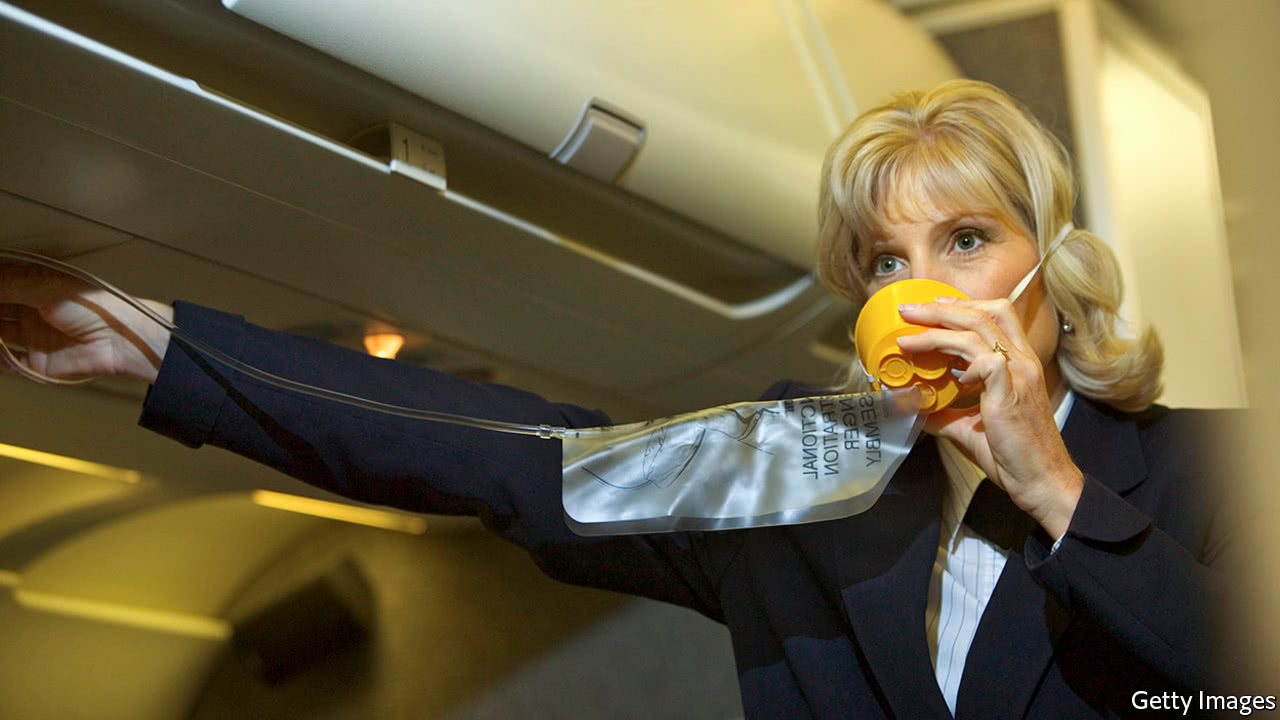
AT 30,000 feet the skies may be clear, but the oxygen certainly is not. Anyone who has wheezed his way through a long plane journey will know that cabin air is hardly pristine. Nearly all aircraft draw in air by way of the plane’s engine compressor. It is common for a small amount of oil to leak over the engine, which then contaminates the stuff that passengers and crew members breathe. Most of the 3.5bn passengers who traveled by plane in 2015 were probably exposed to at least a low level of contamination. But frequent exposure can come with debilitating symptoms, including memory impairment, dizziness and vision problems.
A recent study from the University of Stirling and the University of Ulster reveals the scale of the problem. Researchers examined hundreds of aeroplane crew members and discovered a direct link between air contamination and respiratory, cognitive and even neurological health problems. Out of 274 pilots questioned, 63% reported health problems consistent with breathing tainted air. When the team examined 15 separate incidents of acute aeroplane air contamination, most of which involed oil leakage, nearly 75% of the time multiple crew members on the flight reported adverse health effects. Airline staff are not the only ones at risk. “This is equally applicable to passengers because they breathe the same air,” says Susan Michaelis, one of the researchers and former airline pilot.
The problem has long been discussed within the airline industry, with several small-scale studies having been undertaken. But the new report is a fresh and more comprehensive take on the issue. The authors argue that manufacturers must change the way planes get their air. Boeing 787s, for example, have a separate system that does not draw in air through the engine.
-
The problem of contaminated air on planes
-
Mike Pence, ambassador to a sceptical world
-
Ranking countries by their blasphemy laws
-
How Germany responds to “blood and soil” politics
-
President Trump flunks a moral test
-
Our German election poll tracker
Retrofitting old planes would be expensive. What is more airlines would be wary of anything that suggested liability for their employees’ or customers’ health problems. Ms Michaelis suggests that flyers familiarise themselves with the problem, and push for their airlines to filter air or stop taking it from the engine. She also recommends that passengers speak up if they smell an odour similar to dirty socks or wet dogs, which can indicate contamination, and even bring along oxygen masks, if permitted.
Ms Michaelis says she plans to conduct larger investigations on the subject and include frequent flyers in future examinations. Until things change, when it comes to poor-quality air, passengers have little choice but to suck it up.
Source: economist
The problem of contaminated air on planes